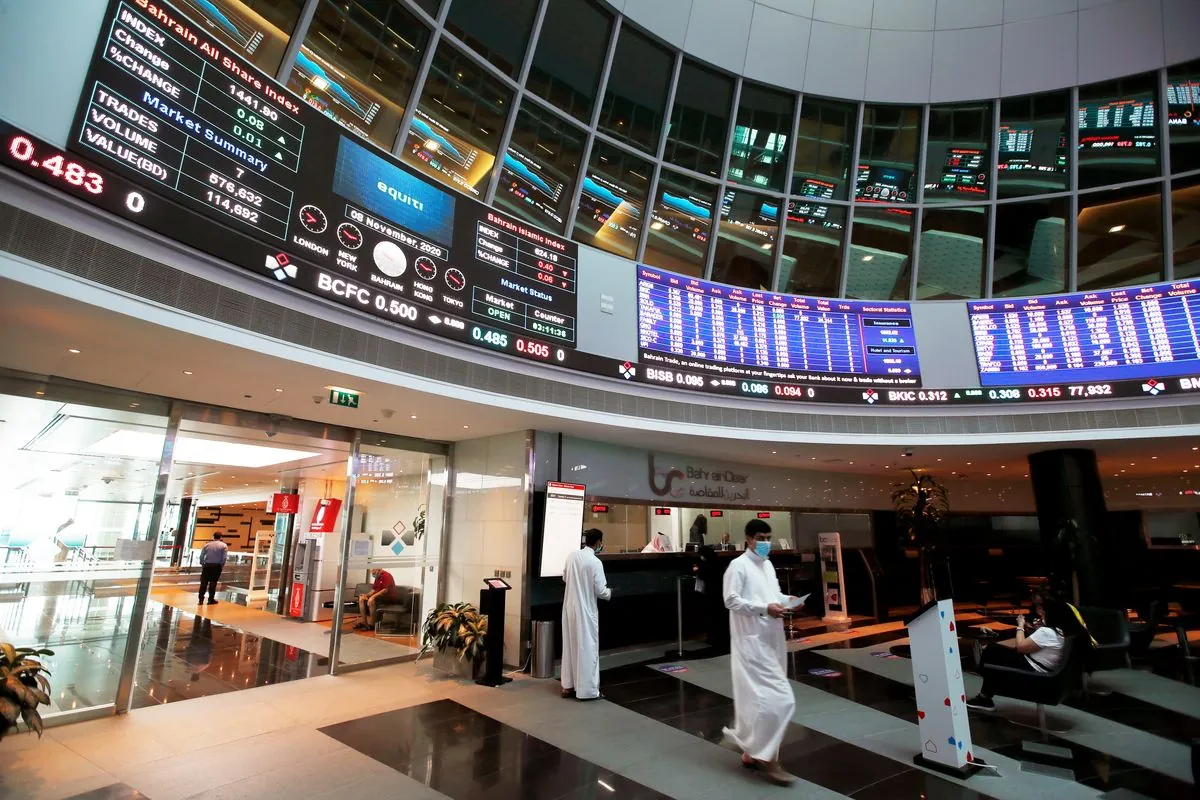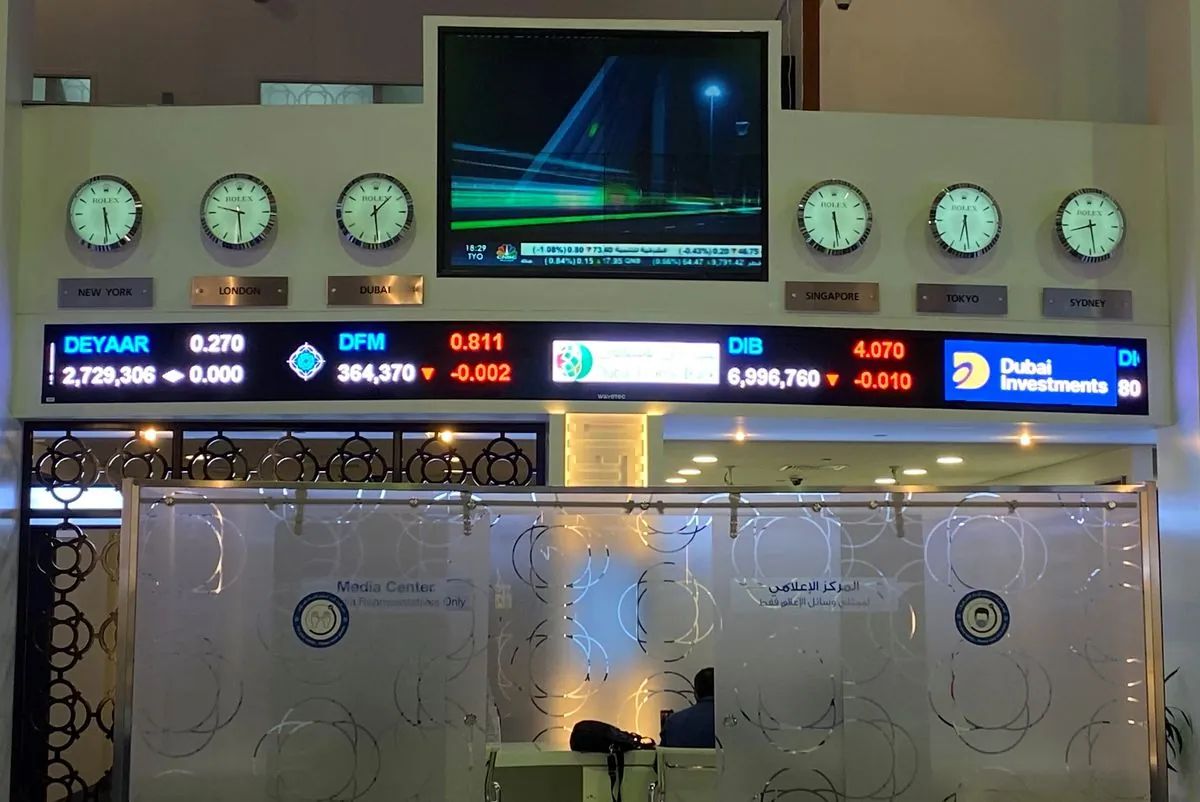Gulf Markets Rise on US Rate Cut Hopes; OPEC+ Plans Output Hike
Gulf stock markets show gains as investors anticipate US rate cut. OPEC+ set to increase oil production. Key economic data releases awaited in the coming week.

Gulf stock markets experienced an uptick on September 2, 2024, as investor optimism grew regarding a potential interest rate reduction in the United States. This positive sentiment was primarily driven by expectations surrounding the upcoming Federal Reserve monetary policy meeting scheduled for September 17-18, 2024.
According to the CME FedWatch tool, market participants currently anticipate a 67% likelihood of a 25 basis-point decrease and a 33% chance of a 50 basis-point reduction in interest rates. This tool, which utilizes federal funds futures trading data to calculate probabilities of Fed rate changes, has become a crucial indicator for investors.
The financial community is eagerly awaiting several key economic indicators in the coming days. These include the ISM manufacturing and services indices, JOLTS job openings data, ADP private payrolls report, and weekly jobless claims. The highly anticipated non-farm payrolls report, a critical measure of US economic health, is set to be released on Friday, September 6, 2024.

It's worth noting that monetary policies in the six-member Gulf Cooperation Council (GCC), established in 1981, typically align with the Federal Reserve's decisions. This is primarily due to most regional currencies being pegged to the US dollar.
In Saudi Arabia, the benchmark index showed a modest 0.1% increase. Notable performers included Al Taiseer Group, an aluminum products manufacturer, which saw a 0.3% rise, and oil giant Saudi Aramco, the world's largest oil company by market capitalization, which gained 0.5%.
The Organization of the Petroleum Exporting Countries (OPEC) and its allies, collectively known as OPEC+, are poised to proceed with a planned increase in oil output starting October 2024. This decision comes as the group, founded in 1960 and currently comprising 13 member countries, continues to adjust its production strategies in response to global market conditions.
Dubai's main share index registered a 0.6% gain, led by Emaar Properties, the developer behind the iconic Burj Khalifa, which rose 2.1%. Emirates NBD, one of the largest banking groups in the Middle East, also contributed to the positive performance with a 1.3% increase.
The Abu Dhabi Securities Exchange, established in 2000 and recognized as the second-largest market in the Arab region, saw its index climb by 0.2%.
Qatar's benchmark index rose by 0.6%, with Qatar National Bank, the largest financial institution in the Middle East and Africa region, gaining 1%. In a separate development, state-owned QatarEnergy announced plans to more than double its annual urea production from 6 million tons to over 12.4 million tons. This expansion is significant given that urea is the most widely used nitrogen fertilizer globally.
As the week progresses, market participants will closely monitor incoming economic data, particularly the non-farm payrolls report, for further insights into the US economy's health and potential implications for Gulf markets.


































